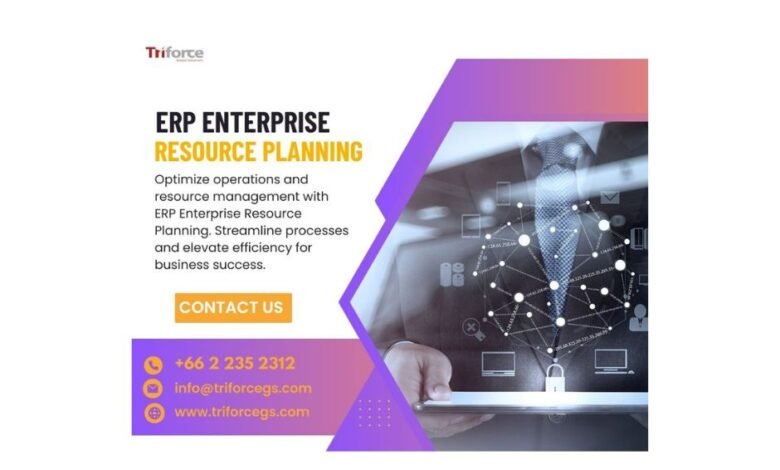
What is a BI Dashboard?
A Business Intelligence (BI) Dashboard is a data visualization tool that displays the current status of metrics and key performance indicators (KPIs) for an enterprise. It provides a real-time overview of business operations and helps decision-makers monitor the health of their organization. These dashboards are often integrated into ERP Enterprise Resource Planning systems, providing users with a comprehensive view of their business data.
The Role of BI Dashboards in ERP
Real-Time Data Analysis
BI Dashboards in ERP systems allow users to access real-time data analysis, providing them with up-to-date information on various aspects of their business. This enables decision-makers to make informed decisions quickly, leading to more efficient operations.
Improved Decision Making
By providing a comprehensive view of business data, BI Dashboards in ERP systems help decision-makers identify trends and patterns that can inform strategic decisions. This leads to better decision-making and improved business outcomes.
Enhanced Visibility
BI Dashboards in ERP systems provide users with a single source of truth for their business data, enhancing visibility and transparency across the organization. This allows users to easily access the information they need, reducing the risk of errors and improving collaboration.
Increased Efficiency
BI Dashboards in ERP systems automate data collection and analysis, reducing the time and effort required to generate reports manually. This increases efficiency and allows users to focus on more strategic tasks.
Customization
BI Dashboards in ERP systems can be customized to meet the specific needs of the organization, allowing users to tailor the dashboard to their preferences. This ensures that decision-makers have access to the information they need, when they need it.
Key Features of BI Dashboards in ERP
Data Visualization
BI Dashboards in ERP systems use data visualization techniques such as charts, graphs, and tables to present information in a visually appealing and easy-to-understand format. This helps users quickly identify trends and patterns in their data.
Drill-Down Capabilities
BI Dashboards in ERP systems allow users to drill down into their data to get more detailed information. This enables users to explore their data in greater depth and gain a deeper understanding of their business operations.
Integration with Other Systems
BI Dashboards in ERP systems can be integrated with other systems, such as CRM and HR systems, to provide users with a comprehensive view of their business data. This allows users to access all the information they need in one place, reducing the need for manual data entry and improving efficiency.
Mobile Access
BI Dashboards in ERP systems can be accessed from any device with an internet connection, including smart phones and tablets. This allows users to access their data on the go, providing them with the flexibility they need to make informed decisions wherever they are.
Alerts and Notifications
BI Dashboards in ERP systems can be configured to send alerts and notifications when certain thresholds are met. This allows users to stay informed about important events and take action quickly when necessary.
Additional Insights
Scalability
BI Dashboards in ERP systems are scalable, meaning they can grow with your business. Whether you are a small startup or a large enterprise, these dashboards can be customized to meet your needs, making them a flexible and cost-effective solution.
Security
BI Dashboards in ERP systems offer robust security features to protect your data. This includes encryption, user authentication, and access controls, ensuring that your data is safe and secure.
Compliance
BI Dashboards in ERP systems help you stay compliant with financial regulations by providing you with accurate and up-to-date financial information. This reduces the risk of penalties and fines, ensuring that your business operates within the law.
Cost Savings
BI Dashboards in ERP systems can help you save money by reducing the need for manual data entry and streamlining your accounting processes. This saves time and reduces the risk of errors, allowing you to focus on other aspects of your business.
Training and Support
BI Dashboards in ERP systems come with comprehensive training and support, ensuring that you get the most out of your investment. This includes online tutorials, user guides, and technical support, helping you get up and running quickly.
Integration with Other BI Tools
BI Dashboards in ERP systems can be integrated with other BI tools, such as data warehouses and data lakes, to provide users with a comprehensive view of their business data. This allows users to access all the information they need in one place, reducing the need for manual data entry and improving efficiency.
Predictive Analytics
BI Dashboards in ERP systems offer predictive analytics capabilities, allowing users to forecast future trends and make informed decisions. This can help you identify opportunities for growth and mitigate risks, ensuring the long-term success of your business.
Collaboration
BI Dashboards in ERP systems facilitate collaboration by allowing users to share data and insights with colleagues. This encourages teamwork and communication, leading to better decision-making and improved business outcomes.
User-Friendly Interface
BI Dashboards in ERP systems have a user-friendly interface that makes it easy for users to access and analyze their data. This ensures that decision-makers have access to the information they need, when they need it, improving efficiency and productivity.
Continuous Improvement
BI Dashboards in ERP systems are continuously updated and improved to provide users with the best possible experience. This includes adding new features and functionalities, as well as fixing any bugs or issues that may arise.
In conclusion, BI Dashboards in ERP systems are a powerful tool for decision-makers in any organization. They provide users with a comprehensive view of their business data, enabling them to make informed decisions quickly and efficiently. These dashboards offer real-time data analysis, improved decision-making, enhanced visibility, increased efficiency, and customization options. With their data visualization capabilities, drill-down capabilities, integration with other systems, mobile access, and alerts and notifications, BI Dashboards in ERP systems are a valuable asset for any business.
Conclusion
BI Dashboards in ERP systems provide users with a comprehensive view of their business data, enabling them to make informed decisions quickly and efficiently. These dashboards offer real-time data analysis, improved decision-making, enhanced visibility, increased efficiency, and customization options. With their data visualization capabilities, drill-down capabilities, integration with other systems, mobile access, and alerts and notifications, BI Dashboards in ERP systems are a powerful tool for decision-makers in any organization.
For More Info: articlemia.com


